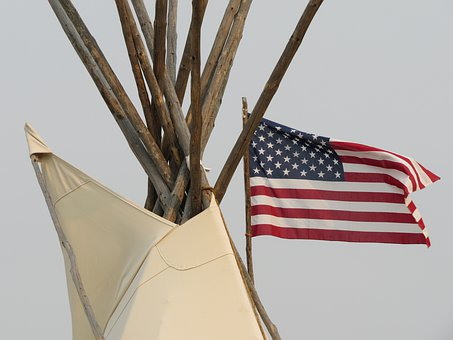Federal Recognition – An Uphill Battle For Hundreds Of Native American Tribes
Federal Recognition – An Uphill Battle For Hundreds Of Native American Tribes January 2022

What’s the big deal about federal recognition of Native American Tribes ? Aren’t tribes proud of their culture and heritage? Don’t they have the same rights as other American Citizens? So what’s so special about recognition? The answer is somewhat simple and complex.
Respect, Recognition, and Financial Support
Federal recognition means that the U.S. government accepts the limited independence and sovereignty of a tribe and deals and interacts with it on a government-to-government basis. In other words, an interaction of equals. It also allows tribes access to federal funds and grants such as Housing Urban Development grants. There are over 400 Native American tribes in the U.S. today that are not recognized. What is holding them back? The answer is that the situation is a Catch 22 one. To be federally recognized, a tribe must seek approval from the United States’s Department of Interior, Bureau of Indian Affairs, demonstrating a nation’s history which has shown continuous existence, political authority, and community since contact as in the case of the Muwekma Ohlone Tribe, as well as other historic California tribal groups. If the recognition is not granted, a Tribe can try to go to court, petition the Bureau of Indian Affairs (BIA), a decision by the Assistant Secretary of Indian Affairs, have Congressional legislation, or try to receive a presidential executive order, which all five of these avenues are nearly impossible due to anti-Indian sentiment with the dominant society and from both political parties.
While these processes are potentially available, it is extremely difficult, if not completely impossible, for a Tribe to gain or regain federal recognition. Some State Recognized tribes back east, have spent upwards to 20 million dollars of their petitions, on research, manpower, lobbying, retention of lawyers, collecting historical and genealogical records, printing, and submitting to the Office of Federal Acknowledgement. In some cases, Federally recognized tribes work in concert to conspire against smaller Tribes who do not have the monitary resources to regain their acknowledged status, thus employing political pressure on elected officials and government agencies to deny these historic tribes recognition.
Some tribes like the Muwekma Ohlone of the San Francisco Bay Area have fought for recognition since the 1960s with the help of a congressman, and again in the 1980s to the present, with the Department of Interior. Their story seems to be a classic example of governmental inertia, red tape, unwillingness to act, and politics, meaning the deliberate actions to thus support the “Politics of Erasure.”.
The Muwekma Story
In the early 1980s, the families of the Muwekma came together to apply for federal recognition. Between 1982 and 1984, the Muwekma Tribal Council was formally organized under the 1934 Indian Reorganization Act and elections were held. In 1989 Muwekma leadership decided to petition the U.S. Government for federal recognition. The petition was submitted in early 1995. Additional research and documentation were submitted and on May 24, 1996, the Bureau of Indian Affairs made a positive determination of “previous unambiguous Federal Recognition.” Even after this, a huge amount of additional documentation had to be submitted to satisfy mandatory criteria. In March 1998, the several hundred additional pages resulted in the BIA issuing a letter stating that the Muwekma petition was ready for “active consideration.” This “ready status” meant that the Muwekma was 22nd on the waiting list for recognition with Muwekma being the only previously federally recognized tribe (under 25 CFR Part 83.8) on that list. Based on the BIA speed of processing, about 1 application per 2 years (if that). It is not surprising that recognition has still not been issued. In the meantime, the Tribe has filed a lawsuit against the Interior department/BIA over the issue of a previously Federally Recognized Tribe for having to wait so many years for the reaffirmation process to be completed.
The matter is still to be resolved. The story of what happened between the filing of the lawsuit and today is too long and complex to go into here. If you want to know the full story, it is available on the Muwekma Ohlone website.